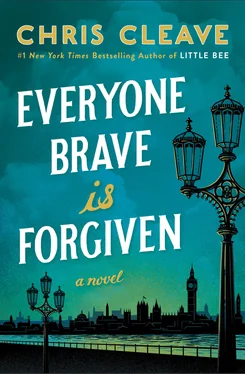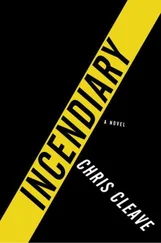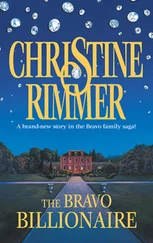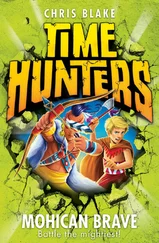Again and again Hilda breathed, and Mary learned the habit of breathing only when Hilda’s lips pressed against hers. How long it went on, and how silently. When finally the water level fell, and words came back into the world, and she heard Hilda saying she must breathe on her own now, Mary had become so dependent on Hilda’s lips that at first she did not dare to breathe without them. She clung to Hilda, and pressed her face to hers, and it took a long time of Hilda gently pushing her away before she understood that her mouth was above water again.
The level fell. The rescuers had managed to run the intake pipes from the fire engines down into the basement, and soon it was pumped dry. They brought a hydraulic jack and lifted the beam that had pinned her. They laid her on a stretcher, wrapped her in blankets and took her to the surface. Hilda took a grease pen and painted a letter M on her forehead.
People were saying how much blood she had lost. Through the slow warp of the morphine Mary tried to listen, although it was becoming harder to make out words. It seemed that the beam, pinning her left leg, had cut into something that bled. Everyone moved faster now, and she watched them all rush around. How funny they were. It was because they did not understand that the air was all one needed. Now this perfect breath; now this one; now this. Hilda tightened a tourniquet around her thigh. How silly she was. They wrapped her in more blankets, and then Clive and Huw lifted her stretcher onto the rack on the roof of the Hillman. Somebody drove, impossibly fast. The Hillman screeched and slewed. Mary thought, I hope they have remembered to strap the world on to me .
Here was the indigo sky, noisy with stars. Mary stared up at them, all the unslaked billions. How gamely they faded. Without fuss, and faster now, the stars were losing their brightness. And as the stars dimmed, by soft degrees and quietly, the stars and the night became one. It was softer than one imagined, at the end. The final thing was the sound — lovely, in its way — of the last, lost bombers of the enemy droning home through the air that had been there all along. The air, then, quietening now — which would be there after they were gone. The ageless air, barely perturbed by their slipstream.
A SIROCCO BLEW DUST in from Africa. The sun, even at noon, cast red light over the island. The wind blew for six days, so dry that exposed skin cracked like fired earth, so hard that the emaciated children could not walk against it and instead careened from alley to alcove in the ruins. The windblown grit scourged their legs until they bled.
The sea was ripped and dyed by the dust. Under the darkened sky the waves, breaking on the southwest coast, bloomed crimson at the foaming crests and purple in the troughs. The islanders hauled their fishing boats up the beaches through the last remaining channels between the mines and the barbed-wire entanglements. In the red light they furled their sails, folded their ragged nets and weighed them down with rocks.
In Fort Bingemma, the wind dragged the sky across the unglazed rifle port of Alistair’s room. He shuttered his mind against the howl. He removed the dressing from his right hand where the airman had bitten it. It came away without pain, drawing with it soft strands of yellowish glutinous matter. It didn’t smell right — but then, Alistair told himself, nothing did. After a year of the siege everything on the island was foul, including the water to wash it in.
The whole edge of his hand was gone now, the fort’s surgeon having excised a little more each time. The infection didn’t want to be cut out. His little finger no longer moved, while the ring finger twitched a slow rhythm of which Alistair was not the conductor. In the deepest part of the wound a tendon shone dully. It was a mercy the light was no better.
With his left hand Alistair knocked a tin of sulfa powder to break up the lumps. He scattered a pinch into the wound. His head festered. The headache was sickening, extending down his spine to his liver. He shook with fever. The body could barely fight back. Not when the bread was one quarter sawdust, and the water was down to the mud at the bottom of the well.
When he stood to put the tin back on the shelf, he saw stars. There was less of him now. There was less of them all. Officers and men dragged themselves around in uniforms three sizes too big, new holes punched into every belt, every collar hanging loose. They were a garrison of skinny boys performing a play about soldiers. It would not have been surprising to discover that their stubble and scars were drawn on with grease paint.
Fingernails bled. Everyone coughed. For weeks the men had lined the ramparts, looking down on the terraces that covered the escarpment. There, under strict supervision, the crops were harvested for the island’s collective ration. It was maddening for starving men to watch the almonds and apricots ripening sixty feet below. The garrison had pet names for each farmer, each terrace, each tree. Using artillery spotters’ binoculars aligned with clinometers on sandbagged and stabilized tripods, the battery’s trained observers monitored the ripening of each individual fig, gave it a number in the military system, and ran a book on the day it would be picked.
Lately the men had begun to give ranks to the fruit: this fat-arsed pear a major, this smug plum a brigadier. When food was collected they stood at attention and saluted the trucks leaving for the warehouse. When a farmer ate a tomato behind a wall, the men knew it. They lined the ramparts and beat out their indignation on pan lids. And still Tom’s jar of blackberry jam stood unopened in the alcove of the rifle port in Alistair’s room. If he opened it, the dust would get into everything he minded about.
“I should think you will lose the hand, don’t you?”
Simonson had appeared at the door. He eyed Alistair’s wound. Alistair took a clean dressing and began to wrap it.
“If I do lose it, you can come and gawk at the stump.”
“I think you should call me Major,”
Alistair lifted one weary eyebrow. “Really? They made you major?”
“In their wisdom. As soon as two little brass crowns can be fought through on a convoy, you will see them on these shoulders.”
“What about Anderton?”
“I never thought he was major material, did you? Plus, he was killed last night. Car went in the sea near Valletta — wind took it clean off the road.”
“I used to enjoy your sense of humor.”
“I couldn’t make it up. After all this — killed by the wind. Imagine writing that to the poor man’s wife.”
“I expect they’ll say ‘killed in action’, don’t you?”
“And that he was a credit, etcetera.”
“Well,” said Alistair, saluting with his bandaged hand. “Major.”
Simonson returned the salute. “Heath.”
“So, the command of the battery?”
“Mine all mine, old soldier. Logan will take over my troop. You can keep yours, if you like. Or hurry up and lose that hand, and I can have you shipped home on the next available empty. With luck you’ll be torpedoed.”
Alistair worked to remove any expression from his face.
“If only that Hun had brushed his teeth,” said Simonson.
Alistair wished he would leave. Simonson poked around the room, picking up books to peer at their titles. He nudged at a rack in which Alistair kept his bottles of turpentine and thinners. “What are these?”
“I use them to clean my wound.”
Simonson took the bung from a bottle of acetone, sniffed, and recoiled.
“God damn it! If you put this on your wound it would bloody well catch fire. What do you really use it for?”
“I fuel a squadron of tiny enemy bombers upon which my men practise firing with tiny anti-aircraft pieces. Afterward we make tea for our dolls.”
Читать дальше












